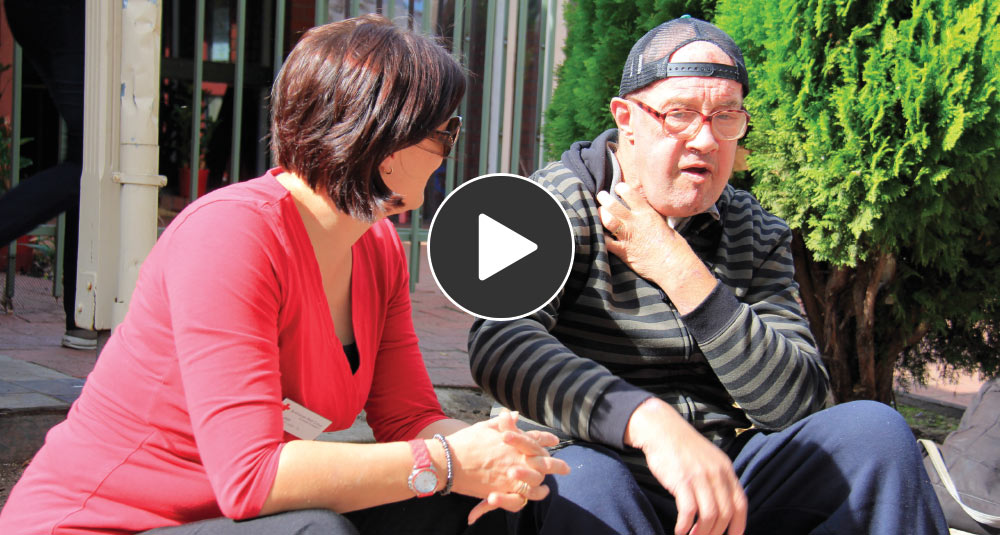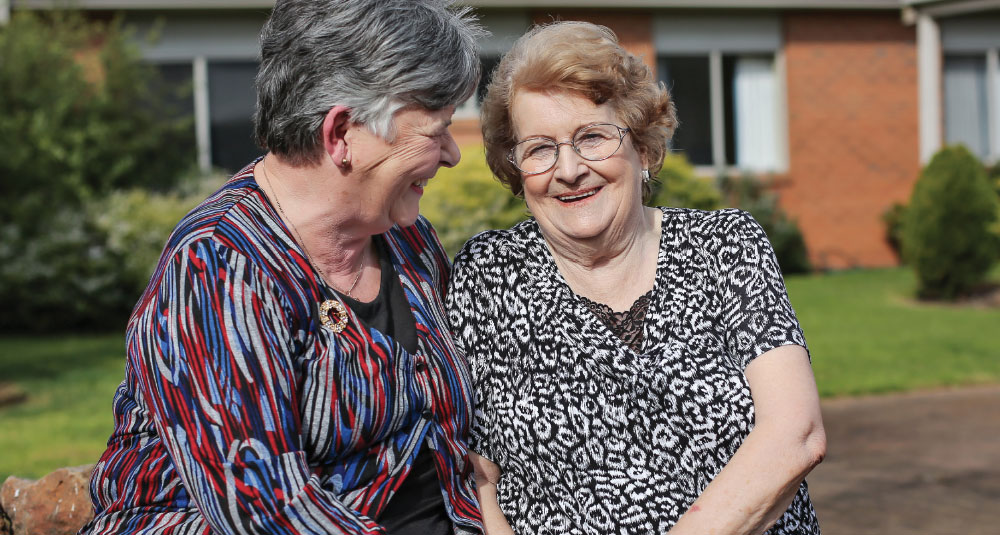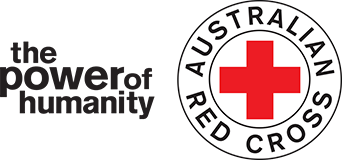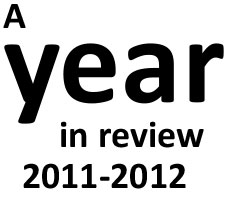Overcoming social exclusion by providing bridges back into the community
Red Cross has expanded its work in social inclusion through new programs that reach more Australians experiencing disadvantage and social exclusion.

Daryl was able to save the life of his unconscious friend by applying practical skills he had learnt during Streetwise first aid training. The training is based on role-play and personal experience, rather than written assessment. “Because I knew what to do, we saved her,” Daryl says, speaking here with Red Cross caseworker Jody Sachs. Australian Red Cross/Clive Taylor
Red Cross is working to achieve an inclusive society, with a focus on building bridges back into the community for those experiencing homelessness or who are at risk of homelessness, isolated older people, people impacted by imprisonment, and people with mental health issues.
Red Cross responds to these issues in unique ways, making a difference to the lives of people who are vulnerable. For instance, two new programs were introduced for people with backgrounds of homelessness: the successful Streetwise pilot, drawing on Red Cross experience in first aid training, and STAY Plus, matching trained volunteers with people who have been homeless and are re- establishing themselves in housing.
A commitment to justice
Internationally, Red Cross has a long history of working with offenders. In 2012 Australian Red Cross developed a Policy Statement on Justice and the Impacts of Imprisonment, which outlines its commitment to improving the lives of individuals and families who are socially excluded as a result of their involvement in the justice system.
Social connectedness
Red Cross continued to develop programs that build the social connectedness of vulnerable people. Crucial to this are volunteers, who provide friendship, support and mentoring through programs such as MATES, which connects socially isolated people to the community; the Community Visitors Scheme, which provides friendship to isolated older people; Post Release Mentoring, where volunteers mentor people recently released from prison; and Bridges, which uses a community development approach to build social connectedness.

Every fortnight, Red Cross volunteer Sue (left) visits Betty, offering regular social contact. ‘We just clicked,’ says Betty of her first meeting with Sue. Red Cross volunteers visit many people across Australia who face social exclusion. Australian Red Cross/Tammy Byrne
Forty years of Telecross
This year marked the 40th anniversary of Telecross, a program that connects thousands of people who are isolated and at risk of an accident or illness that may go unnoticed. Volunteers phone people every day to check on their wellbeing, enabling isolated people to continue to live independently. The success of Telecross has resulted in the further expansion of another program TeleCHAT, where volunteers provide friendship and support to people who experience social isolation.
Peer mentors at Risdon prison in Tasmania provided nearly 3,500 instances of advice and support to fellow inmates.
More than 1,600 vulnerable people received a regular visit from a Red Cross volunteer.
Volunteers made 1.7 million phone calls to isolated people at risk of an accident or illness who may go unnoticed.


Let us know what you think.
We welcome your comments and suggestions. Contact the editorial team at publications@redcross.org.au